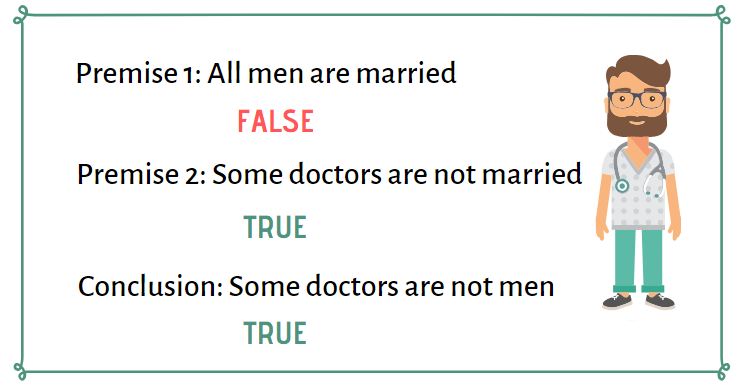The main distinction between a sound and an unsound argument is that a sound argument is valid and has true premises, while an unsound argument is invalid and/or has at least one false premise. Soundness is a technical characteristic of an argument that helps us determine whether the conclusion is true. An argument must meet two requirements to be considered sound: it must be valid, and all its premises must be true.
Key Takeaways
- A sound argument is valid and has true premises, while an unsound argument is invalid or has at least one false premise.
- Soundness is a technical characteristic of an argument that helps us determine whether the conclusion is true.
- An argument must meet two requirements to be considered sound: it must be valid, and all its premises must be true.
What is an Argument?
In logic and philosophy, an argument is a series of statements intended to determine the degree of truth of another statement. Premises and conclusions are the building blocks of an argument. Premises are a series of statements that provide reasons or evidence to determine the truth of a conclusion. Therefore, an argument can have more than one premise. A conclusion in an argument is the main point the arguer is trying to prove. Thus, an argument has only one conclusion and one or more premises. Let’s look at an example:
Premise 1: No one under eighteen-years-old can vote.
Premise 2: Rogan is under eighteen.
Conclusion: Therefore, Rogan cannot vote.
What is a Sound Argument?
An argument must fulfill two requirements to be considered sound. One requirement is that the argument must be valid. An argument is valid when its conclusion follows logically from the premises. In other words, it is impossible for the premises of an argument to be true while the conclusion is false. The second requirement is that all its premises should be true. Thus, a sound argument is a valid argument that has true premises.
The following is a sound argument as it contains true premises and is valid:
All men are mortal.
Socrates is a man.
Therefore, Socrates is mortal.
What is an Unsound Argument?
An unsound argument is the opposite of a sound argument. Thus, an unsound argument can be either valid or invalid. However, if the argument is valid, it has at least one false premise in order to consider it as an unsound argument.
Examples of Sound and Unsound Arguments
Let’s look at some examples of sound and unsound arguments now.
Example 1:
All multiples of 10 are multiples of 5.
20 is a multiple of 10.
Therefore, 20 is a multiple of 5.
It is a valid argument since the conclusion logically follows from the premises. Moreover, it has true premises. Therefore, this is a sound argument.
Example 2:
All cats are pink.
Toffee is a cat.
Therefore, Toffee is pink.
The above is a valid argument too since the conclusion logically follows from the premises. However, the first premise is not true. Therefore, this is an unsound argument.
Example 3:
All cows are mammals.
All dogs are mammals.
Therefore, dogs are cows.
The above argument contains true premises, but it is invalid since the conclusion doesn’t logically follow from the premises. Therefore, it is also an unsound argument.
What is the Difference Between Sound and Unsound Argument?
A sound argument is an argument that is valid and has true premises while an unsound argument is an argument that is invalid or has at least one false premises. Hence, this is the key difference between sound and unsound argument. Therefore, a sound argument always has true premises and true conclusions, whereas an unsound argument may have both false and true premises and conclusions. Thus, this leads to another difference between sound and unsound argument.
Summary – Sound vs Unsound Argument
Validity and the truth of the premises are the two factors that determine the soundness of an argument. A sound argument is an argument that is valid and has true premises while an unsound argument is an argument that is invalid or has at least one false premises. Thus, this is the key difference between sound and unsound argument.
